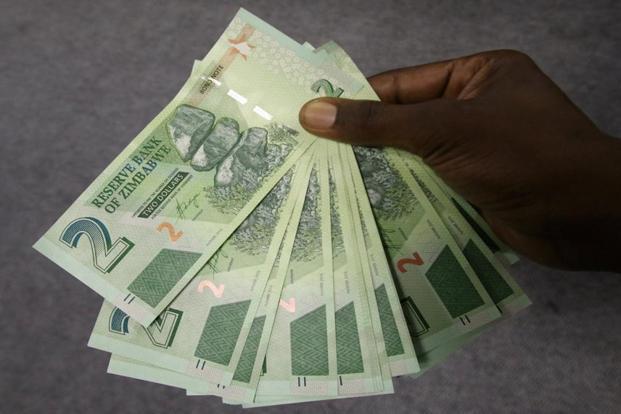
The Sunday Mail

Livingstone Marufu
DESPITE ever-growing demand for cash, the Reserve Bank of Zimbabwe says it will not immediately issue new bond notes to add to the US$121 million in value already in circulation. At the beginning of the year, monetary authorities forecast local cash supplies would improve with the start of the tobacco marketing season and on the back of recovering commodity prices on international markets.
But cash hoarding and externalisation are putting paid to that. RBZ Governor Dr John Mangudya told The Sunday Mail Business last week that the cash currently in circulation — US$900 million and US$130 million worth of bond notes — was sufficient for local transactions.
“As for now, we have decided not to continue issuing out new bond notes into the market as we have enough for transactional processes … We shall (avail more bond notes) when people have fiscal discipline with the money that is available.
“Since last year March, we have suffered due to some detractors who have bad intentions of hoarding and externalising cash in a bid to destabilise our recovery framework , but we won’t fold hands to leave them to do as they will.
“To deal with such bad characters, we have brought into play (the) Bank Use Promotion Act to ensure and encourage people like traders, wholesalers and other dealers to bank their money. And from this legal instrument, we have taken to court over six firms since the start of the year and we shall continue doing that until the people have discipline,” said Dr Mangudya. Authorities say businesses account for much of the indiscipline plaguing the market as civil servants, while accounting for US$200 million in salaries monthly, have little disposable income.
In April, three companies — Take and Tile (Pvt) Ltd, trading as Bathroom Boutique; Candover, trading as the Builders Home; and Stochack, trading as Eurostar Electrical Company Limited — were charged for not banking their cash since June 2016.
As part of broad measures to eliminate cash hoarding, the RBZ recently limited the amount that can be accessed through retailers’ cash-back facilities to US$20.
The central bank is also dissuading banks from importing big denominations such as US$100 and US$50 bills that are convenient for cash smuggling.
There is also a drive to address the structural weaknesses in the economy.
Dr Mangudya said, “If there is no production, there is no economy and there is no gross domestic product … We are spending more precious time talking about currency instead of improving localised production and export to get the much-needed foreign exchange.
“It’s never a currency issue in this economy, we need more incentives and improved investment climate to jump start our economy … We may do a lot of things, which include importing a lot of foreign currency and issuing out more bond notes, but without localised production and exports we won’t go anywhere.”
Bank deposits have continued to grow at around 10 percent per annum to the current level of US$6,5 billion on the back of reduced grain imports, increased Diaspora remittances and export growth.
Monetary authorities are importing US$60 million per month against bank requirements of US$320 million.
Alternative payment platforms such as point-of-sale devices, which have since increased from the current 32 540 to 100 000 units, and the use of mobile money, are increasingly being used; while charges for using electronic platforms have been reduced.



